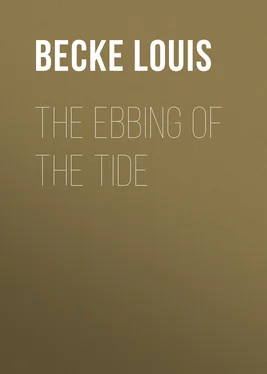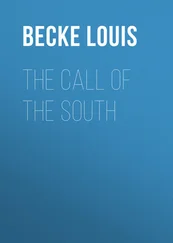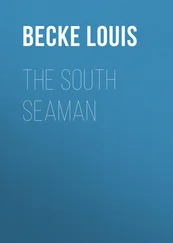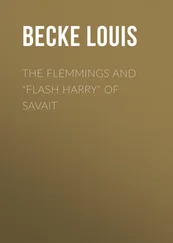Louis Becke - The Ebbing Of The Tide
Здесь есть возможность читать онлайн «Louis Becke - The Ebbing Of The Tide» — ознакомительный отрывок электронной книги совершенно бесплатно, а после прочтения отрывка купить полную версию. В некоторых случаях можно слушать аудио, скачать через торрент в формате fb2 и присутствует краткое содержание. Жанр: foreign_prose, literature_19, foreign_antique, на английском языке. Описание произведения, (предисловие) а так же отзывы посетителей доступны на портале библиотеки ЛибКат.
- Название:The Ebbing Of The Tide
- Автор:
- Жанр:
- Год:неизвестен
- ISBN:нет данных
- Рейтинг книги:5 / 5. Голосов: 1
-
Избранное:Добавить в избранное
- Отзывы:
-
Ваша оценка:
- 100
- 1
- 2
- 3
- 4
- 5
The Ebbing Of The Tide: краткое содержание, описание и аннотация
Предлагаем к чтению аннотацию, описание, краткое содержание или предисловие (зависит от того, что написал сам автор книги «The Ebbing Of The Tide»). Если вы не нашли необходимую информацию о книге — напишите в комментариях, мы постараемся отыскать её.
The Ebbing Of The Tide — читать онлайн ознакомительный отрывок
Ниже представлен текст книги, разбитый по страницам. Система сохранения места последней прочитанной страницы, позволяет с удобством читать онлайн бесплатно книгу «The Ebbing Of The Tide», без необходимости каждый раз заново искать на чём Вы остановились. Поставьте закладку, и сможете в любой момент перейти на страницу, на которой закончили чтение.
Интервал:
Закладка:
Then, still silent, they were pulled ashore.
From his end of the house he heard a soft footfall enter the big room, and then stop. She was standing by the table when, soon after, he came out of his room. At the sound of his footstep she turned the flame of the shaded lamp to its full height, and then raised her face and looked at him. There was a strange, radiant expectancy in her eyes that set his heart to beat wildly. Then he remembered her husband—his friend.
“I suppose Tom won’t be long,” he began, nervously, when she came over to him and placed her hand on his sleeve. The slumbrous eyes were all aglow now, and her bosom rose and fell in short, quick strokes beneath her white muslin gown.
“Why did you go away?” she said, her voice scarce raised above a whisper, yet quivering and tremulous with emotion.
He tried to look away from her, trembling himself, and not knowing what to say.
“Ah,” she said, “speak to me, answer me; why don’t you say something to me? I thought that once your eyes sought mine in the boat”—then as she saw him still standing awkward and silent, all her wild passion burst out—“Brice, Brice, I love you, I love you. And you, you hate me.” He tried to stop her.
Her voice sank again. “Oh, yes, yes; you hate me, else why would you go away without one word to me? Baldwin has told you of—of—of something. It is all true, quite true, and I am wicked, wicked; no woman could have been worse—and you hate me.”
She released her hold upon his arm, and walking over to the window leant against it and wept passionately.
He went over to her and placed his hand upon her shoulder.
“Look here, Loisé, I’m very, very sorry I ever came here in the Malolo ”—her shaking figure seemed to shrink at the words—“for I love you too, but, Loisé—your husband was my father’s oldest friend—and mine.”
The oval, tear-swept face was dangerously close to his now, and set his blood racing again in all the quick, hot madness of youth.
“What is that to me?” she whispered; “I love you.”
Brice shut his fists tightly and then—fatal mistake—tried to be angry and tender at the same moment.
“Ah, but Loisé, you, as well as I, know that among English people, for a man to love his friend’s wife–”
Again the low whisper—“What is that to me—and you? You love me, you say. And, we are not among English people. I have my mother’s heart—not a cold English heart.”
“Loisé, Baldwin is my friend. He looks upon me as his son, and he trusts me—and trusts you.... I could never look him in the face again.... If he were any other man I wouldn’t care, or if, if–”
She lifted her face from his shoulder. “Then you only lied to me. You don’t love me!”
That made him reckless. “Love you! By God. I love you so that if you were any other man’s wife but his–” He looked steadily at her and then, with gentle force, tried to take her arm from his neck.
She knew now that he was the stronger of the two, and yet wished to hear more.
“Brice, dear Brice,” she bent his head down to her lips, “if Baldwin died would you marry me?”
The faintly murmured words struck him like a shot; she still holding her arms around him, watched his face.
He kissed her on the lips. “I would marry you and never go back to the world again,” he answered, in the blind passion of the moment.
A hot, passionate kiss on his lips and she was gone, and Brice, with throbbing pulses and shame in his heart, took up his hat and went out upon the beach. He couldn’t meet Baldwin just then. Other men’s wives had never made him feel such a miserable scoundrel as did this reckless half-blood with the scarlet lips and starry eyes.
That night old Baldwin and the captain of the Malolo got thoroughly drunk in the orthodox and time-honoured Island business fashion. Brice, afraid of “making an ass of himself,” was glad to get away, and took the captain on board at midnight in Baldwin’s boat, and at the mate’s invitation remained for breakfast.
At daylight the mate got the Malolo under weigh, the skipper, with aching head, sitting up in his bunk and cursing the old trader’s hospitality.
When the vessel was well outside the reef, Brice bade him good-bye, and getting his boat alongside started for the shore.
“I will—I must—clear out of this,” he was telling himself as the boat swept round the point of the passage on the last sweep of the ocean swell. “I can’t stay under the same roof with him day after day, month after month, and not feel my folly and her weakness. But where the deuce I can get to for five months till the schooner comes back, I don’t know. There’s the Mission, but that is too close; the old fellow would only bring me back again in a week.”
Suddenly a strange, weird cry pealed over the water from the native village, a cry that to him was mysterious, as well as mournful and blood-chilling.
The four natives who pulled the boat had rested on their oars the instant they heard the cry, and with alarm and deep concern depicted on their countenances were looking toward the shore.
“What is it, boys?” said Brice in English.
Before the native to whom he spoke could answer, the long, loud wailing cry again burst forth.
“Some man die,” said the native who pulled stroke-oar to Brice—he was the only one who knew English.
Then Brice, following the looks of his crew, saw that around the white paling fence that enclosed Baldwin’s house was gathered a great concourse of natives, most of whom were sitting on the ground.
“Give way, boys,” he said, with an instinctive feeling of fear that something dreadful had happened. In another five minutes the boat touched the sand and Brice sprang out.
Maturei alone, of all the motionless, silent crowd that gathered around the house, rose and walked down to him.
“Oh, white man, Tâmu is dead!”
He felt the shock terribly, and for a moment or two was motionless and nerveless. Then the prolonged wailing note of grief from a thousand throats again broke out and brought him to his senses, and with hasty step he opened the gate and went in.
With white face and shaking limbs Loisé met him at the door and endeavoured to speak, but only hollow, inarticulate sounds came from her lips, and sitting down on a cane sofa she covered her face with her robe, after the manner of the people of the island when in the presence of death.
Presently the door of Baldwin’s room opened, and the white-haired old priest came out and laid his hand sympathetically on the young man’s arm, and drew him aside.
He told him all in a few words. An hour before daylight Loisé and the boy Maturei had heard the old trader breathing stertorously, and ere they could raise him to a sitting position he had breathed his last.
Heart disease, the good Father said. And he was so careless a man, was M. Baldwin. And then with tears in his eyes the priest told Brice how, from the olden times when Baldwin, pretending to scoff at the efforts of the missionaries, had yet ever been their best and truest friend.
“And now he is dead, M. Brice, and had I been but a little sooner I could have closed his eyes. I was passing in my boat, hastening to take the mission letters to the Malolo when I heard the tagi (the death wail) of the people here, and hastening ashore found he had just passed away.”
Sick at heart as he was, the young man was glad of the priest’s presence, and presently together they went in and looked at the still figure in the bedroom.
When they returned to the front room they found Loisé had gone.
“She was afraid to stay in the house of death,” said Maturei, “and has gone to Vehaga” (a village eight miles away), “and these are her words to the Father and to the friend of Târau—‘Naught have I taken from the house of Tâmu, and naught do I want’—and then she was gone.”
Читать дальшеИнтервал:
Закладка:
Похожие книги на «The Ebbing Of The Tide»
Представляем Вашему вниманию похожие книги на «The Ebbing Of The Tide» списком для выбора. Мы отобрали схожую по названию и смыслу литературу в надежде предоставить читателям больше вариантов отыскать новые, интересные, ещё непрочитанные произведения.
Обсуждение, отзывы о книге «The Ebbing Of The Tide» и просто собственные мнения читателей. Оставьте ваши комментарии, напишите, что Вы думаете о произведении, его смысле или главных героях. Укажите что конкретно понравилось, а что нет, и почему Вы так считаете.












